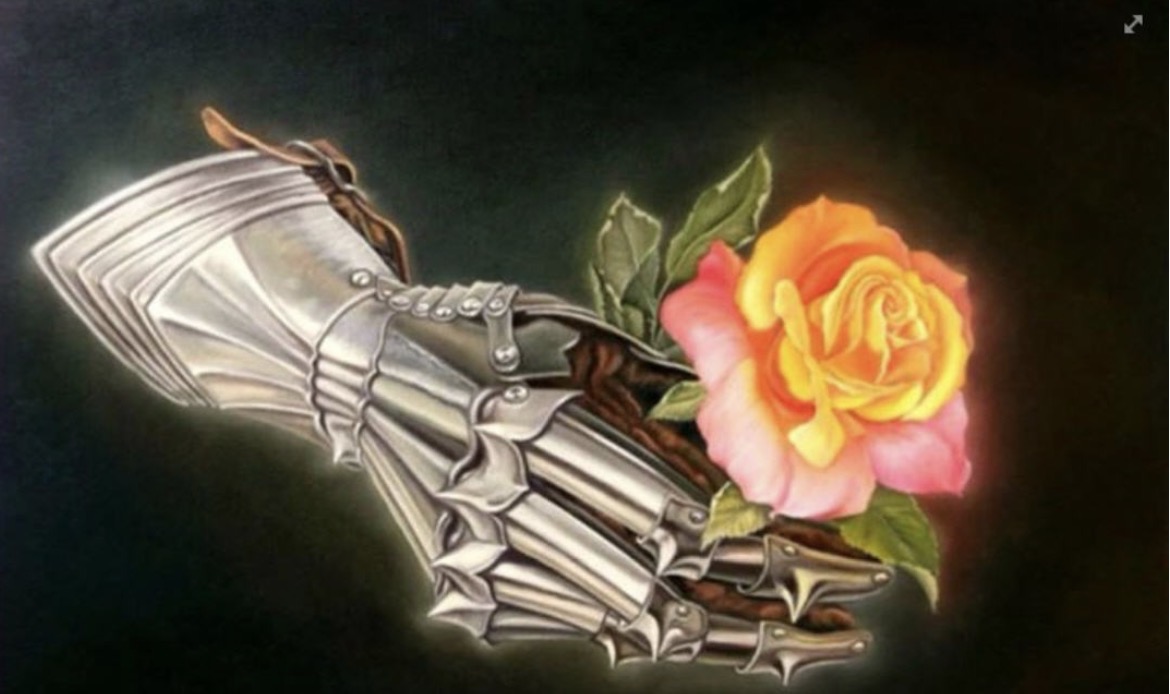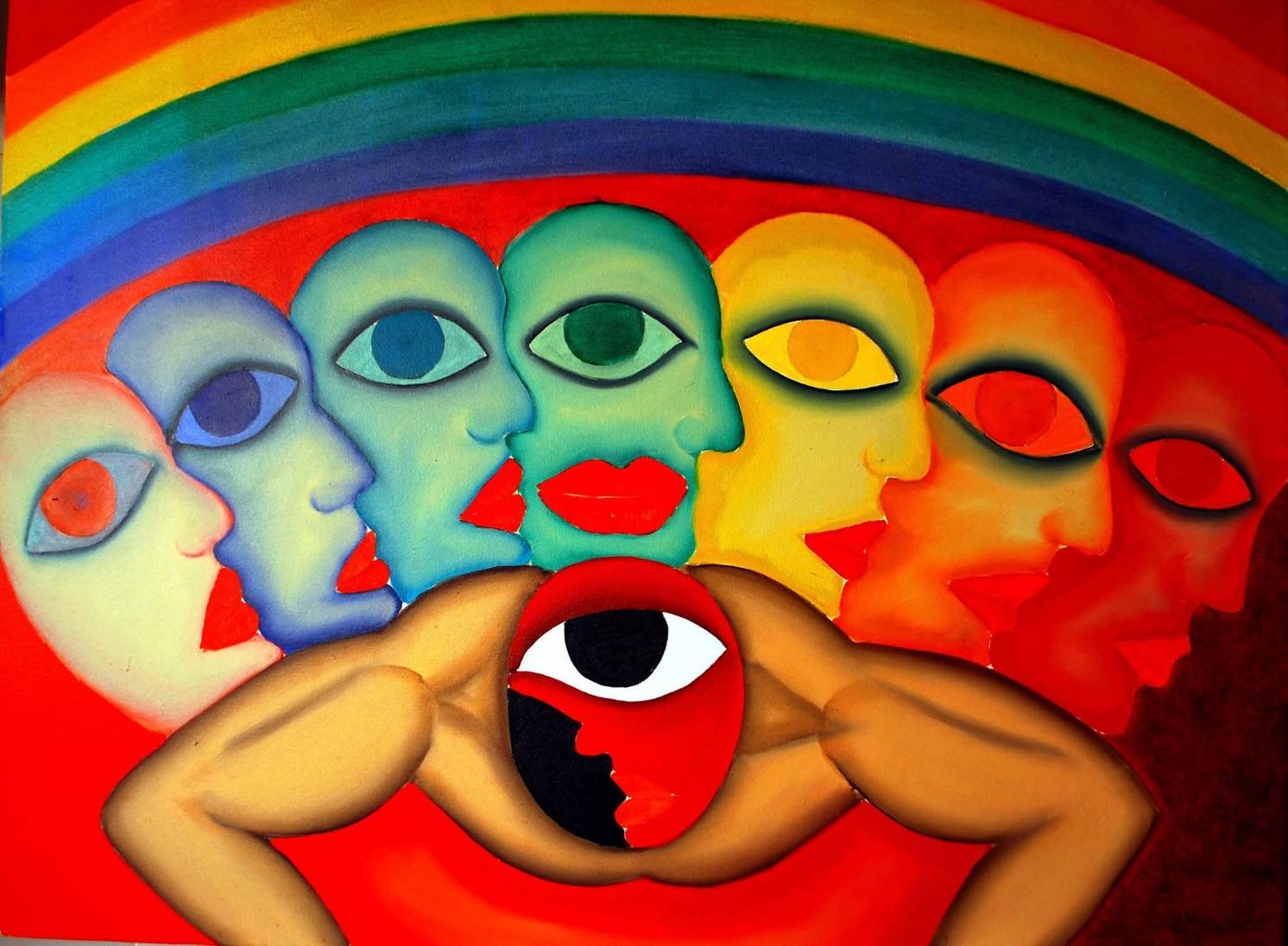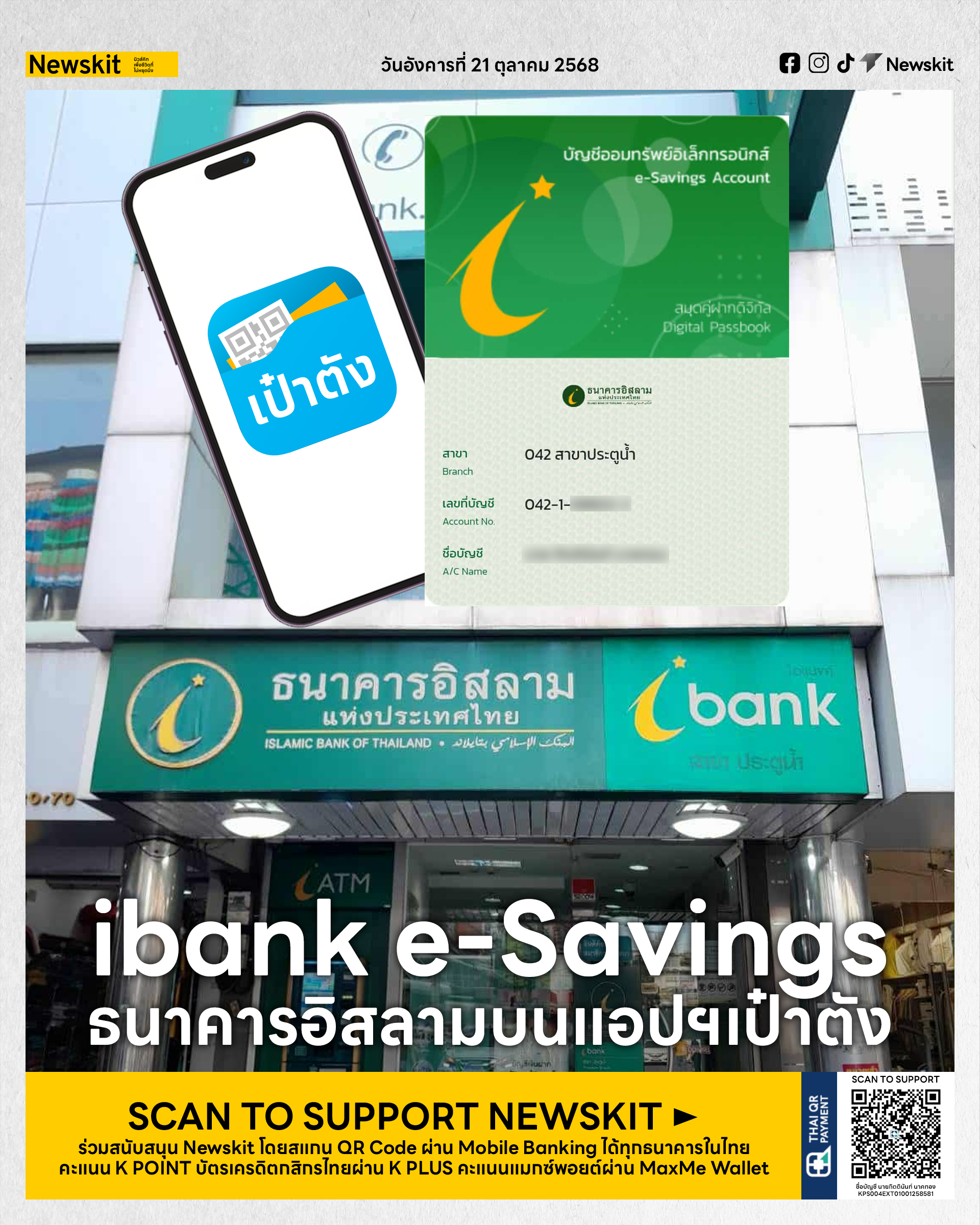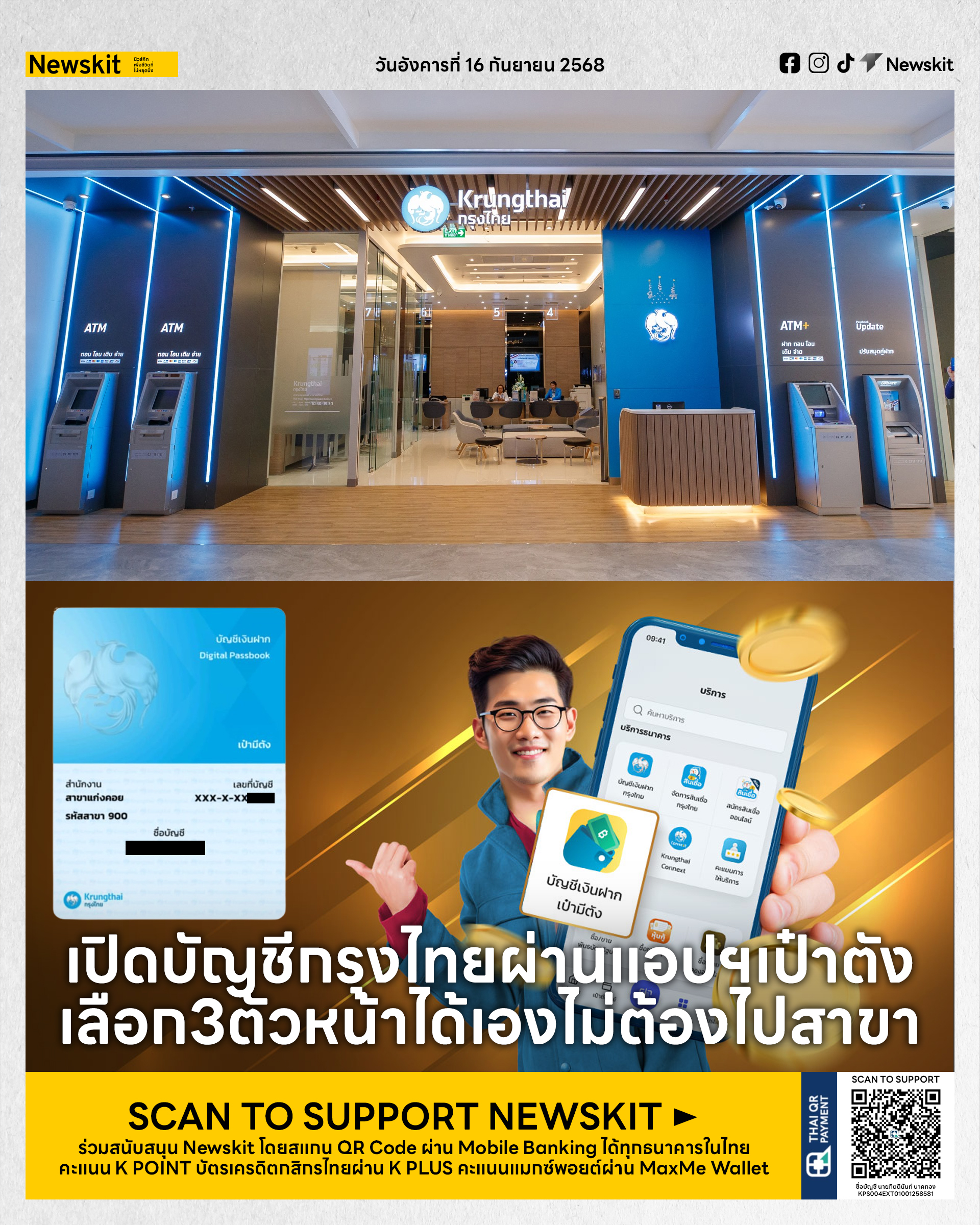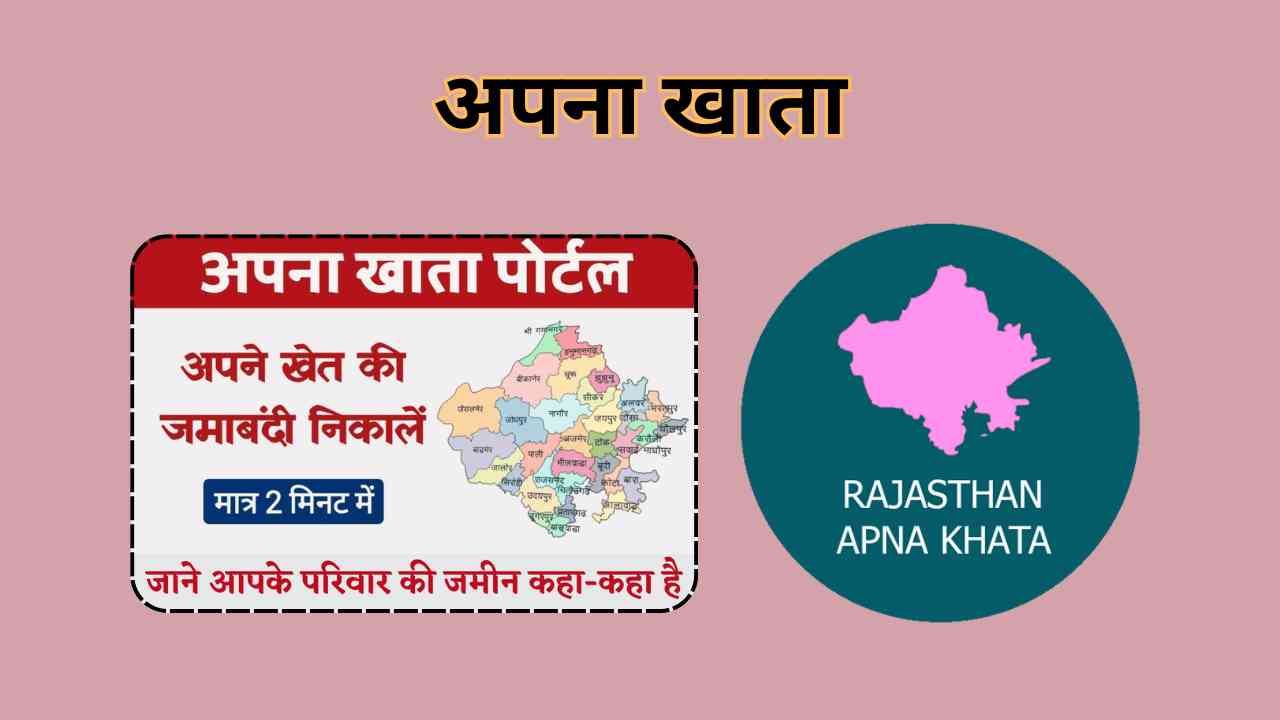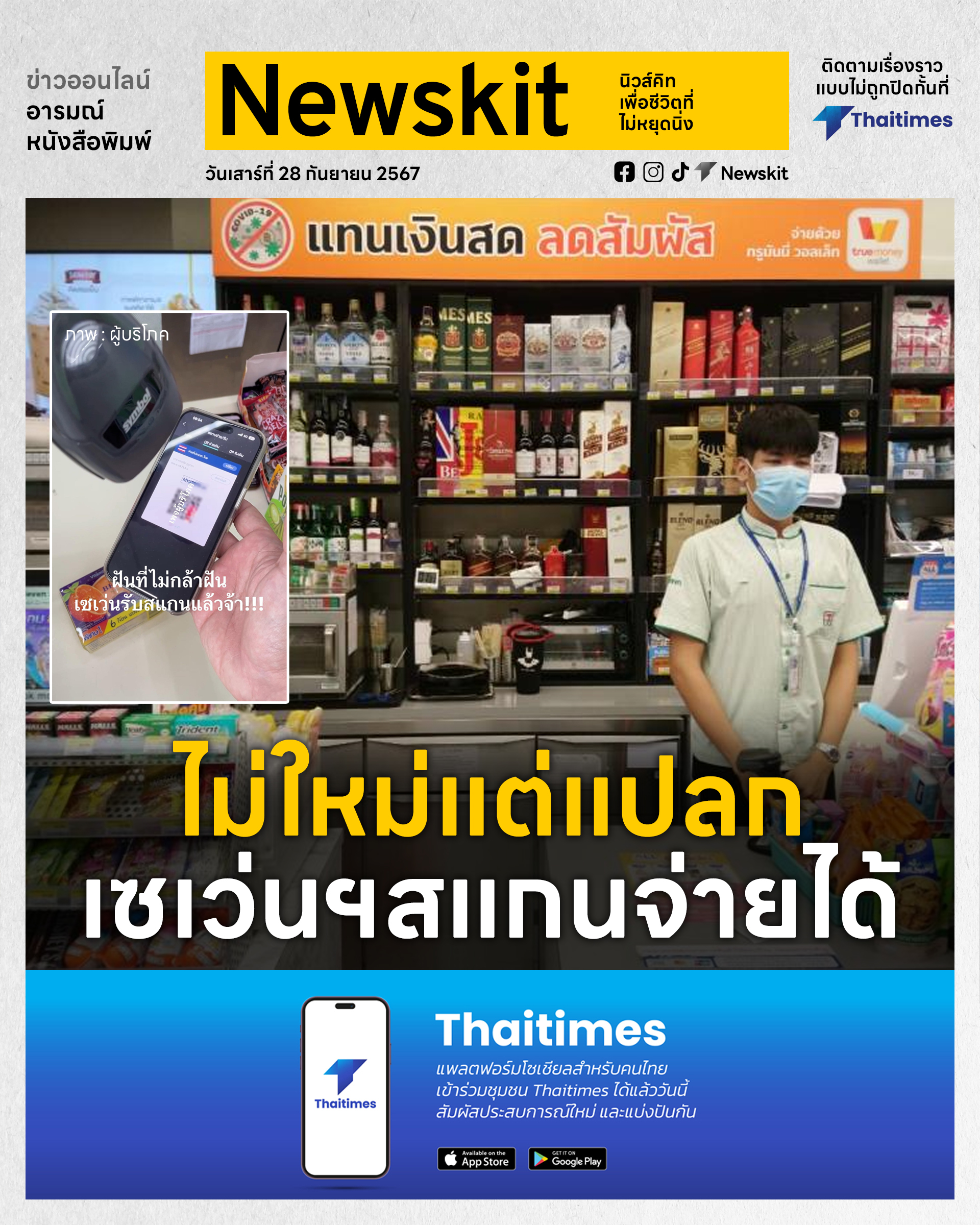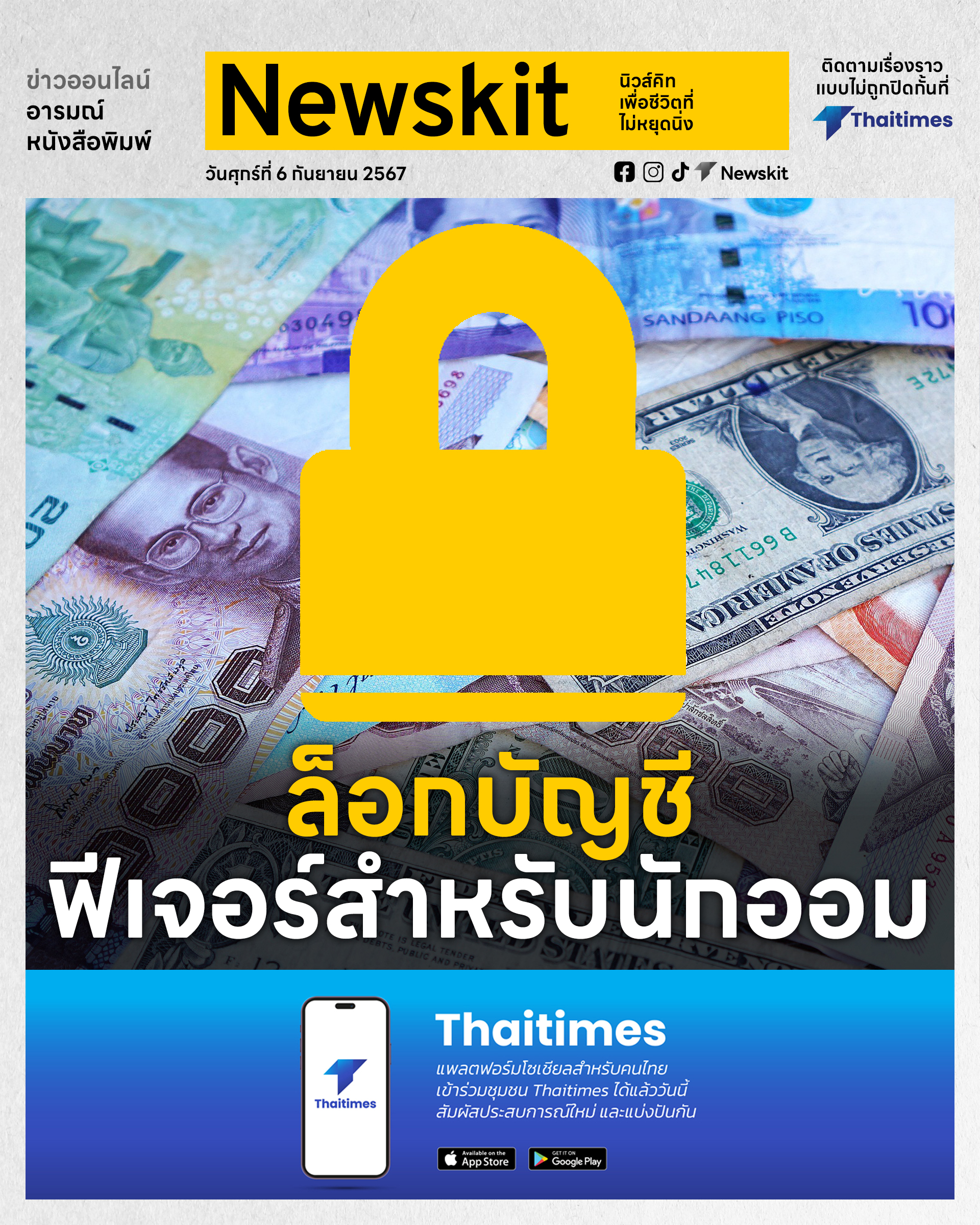🩷 รวมข่าวจากเวบ TechRadar 🩷
#รวมข่าวIT #20251223 #TechRadar
Surfshark ขยาย Dedicated IP มาสู่ Linux GUI App
Surfshark เดินหน้าขยายฟีเจอร์ Dedicated IP มายังแอป GUI บน Linux แบบเต็มรูปแบบ ช่วยลด CAPTCHA, ลดการถูกบล็อก และเพิ่มความเสถียรในการเข้าถึงบริการสำคัญ เช่น ระบบงานองค์กรและธนาคาร โดยไม่ต้องพึ่งส่วนขยายเบราว์เซอร์อีกต่อไป การอัปเดตนี้เป็นส่วนหนึ่งของการผลักดันฟีเจอร์ระดับโปรให้ครอบคลุมทุกแพลตฟอร์ม หลังจากขยายอย่างหนักในปี 2025 และช่วยให้ผู้ใช้ Linux ได้ประสบการณ์ที่ลื่นไหลและปลอดภัยยิ่งขึ้น
https://www.techradar.com/vpn/vpn-services/surfshark-expands-dedicated-ip-to-linux-in-its-latest-desktop-update
Anthropic เปิด Agent Skills เป็นโอเพ่นซอร์ส ท้าชน OpenAI
Anthropic เดินเกมเชิงรุกด้วยการเปิด Agent Skills เป็นมาตรฐานโอเพ่นซอร์ส เพื่อให้ AI agents ทำงานซ้ำ ๆ ได้อย่างแม่นยำและปรับแต่งได้ง่ายขึ้น โดย Microsoft และเครื่องมือโค้ดหลายตัวเริ่มนำไปใช้แล้ว การเคลื่อนไหวนี้สะท้อนความตั้งใจของ Anthropic ที่ต้องการเป็นเลเยอร์โครงสร้างพื้นฐานของอุตสาหกรรม AI ไม่ใช่แค่ผู้ผลิตโมเดลอีกต่อไป
https://www.techradar.com/pro/anthropic-takes-the-fight-to-openai-with-enterprise-ai-tools-and-theyre-going-open-source-too
ดีลคลาวด์ช่วงคริสต์มาส ช่วยเคลียร์รูปในมือถือแบบคุ้มสุด
TechRadar แนะนำดีลคลาวด์สตอเรจช่วงคริสต์มาสสำหรับคนที่รูปเต็มมือถือ โดยยกให้ IDrive เป็นตัวเลือกอันดับหนึ่งเพราะได้พื้นที่ 10TB ในราคาถูกมาก พร้อมเข้ารหัสแบบ end‑to‑end และแอปใช้งานง่าย นอกจากนี้ยังมีดีลจาก Internxt, Sync.com และ Degoo ที่เน้นความปลอดภัยและพื้นที่จัดเก็บจำนวนมาก เหมาะทั้งผู้ใช้ทั่วไปและธุรกิจ
https://www.techradar.com/pro/cut-through-camera-roll-chaos-with-these-christmas-cloud-storage-deals-including-a-huge-saving-on-our-top-choice
รีวิวโต๊ะยืน Eureka Ark EL — ดีไซน์เด่น ฟีเจอร์ครบ แต่ราคาแรง
Eureka Ark EL Executive Standing Desk โดดเด่นด้วยดีไซน์ขาโต๊ะทรงใหญ่สไตล์พรีเมียม พร้อมระบบปรับระดับไฟฟ้า 3 โปรไฟล์ ความสูงสูงสุด 48 นิ้ว รองรับน้ำหนัก 100 กก. และมีที่ชาร์จไร้สาย + พอร์ต USB ในตัว แม้จะเป็นโต๊ะที่ใช้งานดีและประกอบง่าย แต่ราคาค่อนข้างสูง วัสดุบางส่วนไม่พรีเมียมเท่าที่ควร และลิ้นชักมีความจุจำกัด
https://www.techradar.com/pro/eureka-ergonomic-ark-el-executive-standing-desk
HPE เตือนลูกค้าอัปเดต OneView ด่วน หลังพบช่องโหว่ระดับ 10/10
HPE ออกแพตช์อุดช่องโหว่ร้ายแรงใน OneView (CVE‑2025‑37164) ซึ่งเปิดทางให้ผู้โจมตีรันโค้ดจากระยะไกลได้โดยไม่ต้องยืนยันตัวตน เสี่ยงต่อการถูกเปลี่ยนค่าคอนฟิกเซิร์ฟเวอร์ ติดมัลแวร์ หรือสร้างแบ็กดอร์ในระดับโครงสร้างพื้นฐาน ทำให้ผู้ใช้ต้องอัปเกรดเป็นเวอร์ชัน 11.0 หรือใช้ hotfix ทันทีเพื่อป้องกันความเสียหาย
https://www.techradar.com/pro/security/hpe-tells-customers-to-patch-oneview-immediately-as-top-level-security-flaw-spotted
Arm สูญมูลค่าหลายพันล้าน หลัง Qualcomm เดินเกม RISC‑V
Arm เผชิญแรงสั่นสะเทือนครั้งใหญ่เมื่อ Qualcomm ประกาศเข้าซื้อ Ventana Micro เพื่อเร่งพัฒนา RISC‑V ทำให้นักลงทุนกังวลว่าอนาคตความต้องการสถาปัตยกรรม Arm อาจลดลง ส่งผลให้หุ้นร่วงหนัก ขณะที่ Qualcomm กลับพุ่งขึ้นเพราะตลาดมองว่าบริษัทกำลังวางรากฐานสู่ยุค CPU แบบผสมผสาน Arm + RISC‑V สำหรับดาต้าเซ็นเตอร์และอุปกรณ์ประสิทธิภาพสูงในอนาคต
https://www.techradar.com/pro/arm-sheds-billions-in-market-capitalization-after-qualcomm-hints-at-risc-v-adoption-with-ventara-micro-acquisition
Qualcomm เร่งขยายอาณาจักร AI Data Center ด้วยดีล Alphawave Semi
Qualcomm ปิดดีลซื้อ Alphawave Semi เร็วกว่ากำหนด เสริมแกร่งด้านเทคโนโลยีเชื่อมต่อความเร็วสูงและชิปแบบ custom เพื่อรองรับงาน AI ขนาดใหญ่ โดยจะผสานเข้ากับสถาปัตยกรรม Oryon และ Hexagon เพื่อสร้างแพลตฟอร์มดาต้าเซ็นเตอร์ที่ครบวงจร พร้อมตั้ง CEO ของ Alphawave มาคุมธุรกิจดาต้าเซ็นเตอร์โดยตรง สะท้อนความตั้งใจของ Qualcomm ที่จะท้าชน Nvidia ในตลาดโครงสร้างพื้นฐาน AI
https://www.techradar.com/pro/watch-out-nvidia-qualcomm-acquires-alphawave-semi-in-latest-addition-to-its-ai-data-center-push
Gemini 3 Flash ฉลาดและเร็ว — แต่ยัง “มั่วเนียน” เมื่อไม่รู้คำตอบ
Gemini 3 Flash ทำคะแนนสูงในหลายการทดสอบ แต่ผลวิเคราะห์ล่าสุดเผยว่าเมื่อโมเดลไม่รู้คำตอบ มันเลือก “ตอบมั่ว” ถึง 91% แทนที่จะบอกว่าไม่รู้ ซึ่งเป็นพฤติกรรมที่เสี่ยงต่อการใช้งานในสถานการณ์จริง โดยเฉพาะเมื่อถูกผนวกเข้ากับ Search แม้ยังเป็นหนึ่งในโมเดลที่แม่นยำที่สุด แต่ความมั่นใจเกินเหตุในบริบทที่ไม่มีข้อมูลจริงยังเป็นจุดอ่อนสำคัญที่ Google ต้องเร่งแก้
https://www.techradar.com/ai-platforms-assistants/gemini-3-flash-is-smart-but-when-it-doesnt-know-it-makes-stuff-up-anyway
AWS มองอนาคตเป็นยุค “Internet of Agents” พร้อมผลักดัน AgentCore
ผู้บริหาร AWS เผยวิสัยทัศน์ยุคใหม่ที่ AI agents จะกลายเป็นผู้ช่วยประจำตัวทุกคน โดย AWS ต้องการให้ทุกนักพัฒนาเป็น “agentic developer” ผ่านแพลตฟอร์มอย่าง AgentCore และ Kiro IDE ที่ช่วยสร้าง agent ได้ง่ายขึ้น พร้อมย้ำว่าความน่าเชื่อถือและการตรวจสอบโดยมนุษย์ยังเป็นหัวใจสำคัญ ก่อนที่โลกจะเข้าสู่ยุคที่งานจำนวนมากถูกเร่งด้วย agent แต่ไม่แทนที่มนุษย์
https://www.techradar.com/pro/we-are-living-in-times-of-great-change-i-speak-to-aws-top-ai-minds-to-hear-how-it-wants-to-open-up-agents-and-building-to-everyone
กล้องวงจรปิดไม่ง้อรายเดือน — 3 รุ่นแนะนำจากผู้เชี่ยวชาญ Smart Home
TechRadar คัด 3 กล้องวงจรปิดที่ใช้งานได้เต็มฟีเจอร์โดยไม่ต้องจ่ายค่าสมาชิกรายเดือน ได้แก่ Baseus S2 ที่มีแผงโซลาร์หมุนตามแสงและระบบจดจำใบหน้า, Swann MaxRanger4K ที่ให้ความละเอียดสูงพร้อมฐานเก็บข้อมูลในตัว และ Reolink Altas PT Ultra ที่เด่นด้านการหมุน‑แพน‑ซูมและภาพกลางคืนสีสันคมชัด ทั้งหมดรองรับการบันทึกแบบ local storage ช่วยลดค่าใช้จ่ายระยะยาว
https://www.techradar.com/home/home-security/top-3-subscription-free-home-security-cameras
Google Cloud รีเฟรช Partner Network ครั้งใหญ่ เตรียมใช้จริงปี 2026
Google Cloud เปิดตัวโปรแกรมพาร์ตเนอร์รูปแบบใหม่ที่เน้น “ผลลัพธ์จริงของลูกค้า” มากกว่าการส่งเอกสารหรือทำตามเช็กลิสต์ โดยเพิ่มระบบอัตโนมัติ, การติดตามด้วย AI และเปิดระดับใหม่ชื่อ Diamond สำหรับพาร์ตเนอร์ที่สร้างผลลัพธ์โดดเด่นที่สุด พร้อมช่วงเปลี่ยนผ่าน 6 เดือนเพื่อให้ทุกประเภทพาร์ตเนอร์ปรับตัวก่อนระบบใหม่เริ่มใช้งานเต็มรูปแบบในปี 2026
https://www.techradar.com/pro/google-cloud-reveals-all-new-channel-program-heres-all-the-key-details
Alphabet ทุ่ม $4.75B ซื้อ Intersect Power เสริมพลังงานให้ดาต้าเซ็นเตอร์
Alphabet เข้าซื้อ Intersect Power แบบเต็มตัวเพื่อเพิ่มกำลังผลิตไฟฟ้าและโครงสร้างพื้นฐานรองรับดาต้าเซ็นเตอร์ หลังจากเคยลงทุนไปแล้ว $800M ในปี 2024 โดย Intersect จะยังคงดำเนินงานแยกบริษัท พร้อมส่งมอบโครงการพลังงานหลายกิกะวัตต์ให้ Google ใช้ขยายศูนย์ข้อมูลในอนาคต แม้บางทรัพย์สินในแคลิฟอร์เนียและเท็กซัสจะถูกแยกออกไปตั้งบริษัทใหม่ก็ตาม
https://www.techradar.com/pro/alphabet-secures-usd4-75-billion-intersect-deal-to-make-sure-its-data-centers-have-enough-energy
Oppo Find X9 Pro — เรือธงสุดโหดสำหรับสาย Android ตัวจริง
Oppo Find X9 Pro มาพร้อมดีไซน์ใหม่แบบขอบแบน กล้องจัดเต็ม 50MP + 50MP + 200MP, ชิป Dimensity 9500, RAM 16GB และแบต 7,500mAh ที่อึดกว่าคู่แข่งหลายรุ่น หน้าจอ AMOLED 120Hz สว่างสุด 3600 nits และประสิทธิภาพระดับท็อป แม้จะมีความร้อนบ้างและซอฟต์แวร์บางจุดยังแปลก ๆ แต่โดยรวมคือหนึ่งใน Android ที่ครบเครื่องที่สุด—ติดเพียงข้อจำกัดด้านการวางจำหน่ายที่ยังไม่ทั่วโลก
https://www.techradar.com/phones/oppo-phones/oppo-find-x9-pro-review
NordProtect เพิ่มระบบ Fraud Monitoring ตรวจจับการปลอมตัวและกู้เงินแอบอ้าง
NordProtect อัปเกรดระบบป้องกันการฉ้อโกงครั้งใหญ่ โดยเพิ่มการตรวจสอบข้อมูลจาก Equifax, Experian และ TransUnion เพื่อหาสัญญาณเปิดบัญชีใหม่, การเปลี่ยนเครดิตสกอร์, การกู้เงินระยะสั้น และการเปิดบัญชีการเงินโดยใช้ข้อมูลผู้ใช้ พร้อมผสานการล็อกเครดิตของ TransUnion เข้ามาในระบบ แม้บริการเต็มรูปแบบจะยังจำกัดเฉพาะในสหรัฐฯ ก็ตาม
https://www.techradar.com/pro/security/nordprotect-adds-fraud-monitoring-tool-to-help-protect-users-from-scams
iPod Classic กลับมาในร่างใหม่ — USB‑C, Bluetooth และราคาสุดถูก
Innioasis Y1 คือเครื่องเล่นเพลงที่ถอดแบบ iPod Classic แทบทุกจุด ทั้งดีไซน์และ clickwheel แต่เพิ่มความทันสมัยด้วย USB‑C, Bluetooth, รองรับไฟล์หลากหลาย และแบตเล่นเพลงได้ 25–30 ชั่วโมง ในราคาต่ำกว่า $60 แม้คุณภาพงานประกอบและซอฟต์แวร์จะไม่เทียบ Apple และความจุจำกัดที่ 128GB แต่ก็เป็นอุปกรณ์ที่มีเสน่ห์สำหรับคนคิดถึงยุค iPod
https://www.techradar.com/audio/portable-media-players/someones-made-a-usb-c-version-of-the-ipod-classic-complete-with-clickwheel-and-its-extremely-cheap
Windows 11 เดินหน้าทดสอบ AI Agents ในระบบ แม้เสียงวิจารณ์ยังแรง
Microsoft ปล่อยพรีวิว Windows 11 ที่โชว์การทำงานของ AI agents ชัดขึ้น ทั้ง Ask Copilot บนทาสก์บาร์, การอัปเดตสถานะ reasoning แบบเรียลไทม์เมื่อโฮเวอร์ไอคอน และระบบ Agent Launcher ที่เปิดให้แอปภายนอกสร้าง agent ของตัวเองได้ แม้เป็นก้าวสำคัญของ Windows ยุค AI แต่ผู้ใช้จำนวนมากยังไม่พอใจที่ Microsoft ทุ่มทรัพยากรไปกับ AI มากกว่าการแก้ปัญหา UX และบั๊กพื้นฐานของระบบ
https://www.techradar.com/computing/windows/windows-11-preview-provides-more-details-on-how-ai-agents-will-work-but-this-remains-a-controversial-path-for-microsoft
มหาวิทยาลัย Phoenix ถูกแฮ็ก ข้อมูลกว่า 3.5 ล้านรายรั่วจากช่องโหว่ Oracle
University of Phoenix ยืนยันว่าถูกกลุ่มแรนซัมแวร์ Cl0p เจาะระบบผ่านช่องโหว่ zero‑day ของ Oracle E‑Business Suite ทำให้ข้อมูลของอดีตนักศึกษา พนักงาน และซัพพลายเออร์กว่า 3.5 ล้านรายถูกขโมย ทั้งชื่อ วันเกิด เบอร์บัญชี และ Social Security Number มหาวิทยาลัยแจ้งเตือนผู้ได้รับผลกระทบ พร้อมให้บริการตรวจสอบตัวตน 12 เดือน และตั้งกองทุนชดเชยความเสียหายสูงสุด $1 ล้าน
https://www.techradar.com/pro/security/university-of-phoenix-data-breach-may-have-hit-over-3-5-million-victims-heres-what-we-know
#รวมข่าวIT #20251223 #TechRadar
Surfshark ขยาย Dedicated IP มาสู่ Linux GUI App
Surfshark เดินหน้าขยายฟีเจอร์ Dedicated IP มายังแอป GUI บน Linux แบบเต็มรูปแบบ ช่วยลด CAPTCHA, ลดการถูกบล็อก และเพิ่มความเสถียรในการเข้าถึงบริการสำคัญ เช่น ระบบงานองค์กรและธนาคาร โดยไม่ต้องพึ่งส่วนขยายเบราว์เซอร์อีกต่อไป การอัปเดตนี้เป็นส่วนหนึ่งของการผลักดันฟีเจอร์ระดับโปรให้ครอบคลุมทุกแพลตฟอร์ม หลังจากขยายอย่างหนักในปี 2025 และช่วยให้ผู้ใช้ Linux ได้ประสบการณ์ที่ลื่นไหลและปลอดภัยยิ่งขึ้น
https://www.techradar.com/vpn/vpn-services/surfshark-expands-dedicated-ip-to-linux-in-its-latest-desktop-update
Anthropic เปิด Agent Skills เป็นโอเพ่นซอร์ส ท้าชน OpenAI
Anthropic เดินเกมเชิงรุกด้วยการเปิด Agent Skills เป็นมาตรฐานโอเพ่นซอร์ส เพื่อให้ AI agents ทำงานซ้ำ ๆ ได้อย่างแม่นยำและปรับแต่งได้ง่ายขึ้น โดย Microsoft และเครื่องมือโค้ดหลายตัวเริ่มนำไปใช้แล้ว การเคลื่อนไหวนี้สะท้อนความตั้งใจของ Anthropic ที่ต้องการเป็นเลเยอร์โครงสร้างพื้นฐานของอุตสาหกรรม AI ไม่ใช่แค่ผู้ผลิตโมเดลอีกต่อไป
https://www.techradar.com/pro/anthropic-takes-the-fight-to-openai-with-enterprise-ai-tools-and-theyre-going-open-source-too
ดีลคลาวด์ช่วงคริสต์มาส ช่วยเคลียร์รูปในมือถือแบบคุ้มสุด
TechRadar แนะนำดีลคลาวด์สตอเรจช่วงคริสต์มาสสำหรับคนที่รูปเต็มมือถือ โดยยกให้ IDrive เป็นตัวเลือกอันดับหนึ่งเพราะได้พื้นที่ 10TB ในราคาถูกมาก พร้อมเข้ารหัสแบบ end‑to‑end และแอปใช้งานง่าย นอกจากนี้ยังมีดีลจาก Internxt, Sync.com และ Degoo ที่เน้นความปลอดภัยและพื้นที่จัดเก็บจำนวนมาก เหมาะทั้งผู้ใช้ทั่วไปและธุรกิจ
https://www.techradar.com/pro/cut-through-camera-roll-chaos-with-these-christmas-cloud-storage-deals-including-a-huge-saving-on-our-top-choice
รีวิวโต๊ะยืน Eureka Ark EL — ดีไซน์เด่น ฟีเจอร์ครบ แต่ราคาแรง
Eureka Ark EL Executive Standing Desk โดดเด่นด้วยดีไซน์ขาโต๊ะทรงใหญ่สไตล์พรีเมียม พร้อมระบบปรับระดับไฟฟ้า 3 โปรไฟล์ ความสูงสูงสุด 48 นิ้ว รองรับน้ำหนัก 100 กก. และมีที่ชาร์จไร้สาย + พอร์ต USB ในตัว แม้จะเป็นโต๊ะที่ใช้งานดีและประกอบง่าย แต่ราคาค่อนข้างสูง วัสดุบางส่วนไม่พรีเมียมเท่าที่ควร และลิ้นชักมีความจุจำกัด
https://www.techradar.com/pro/eureka-ergonomic-ark-el-executive-standing-desk
HPE เตือนลูกค้าอัปเดต OneView ด่วน หลังพบช่องโหว่ระดับ 10/10
HPE ออกแพตช์อุดช่องโหว่ร้ายแรงใน OneView (CVE‑2025‑37164) ซึ่งเปิดทางให้ผู้โจมตีรันโค้ดจากระยะไกลได้โดยไม่ต้องยืนยันตัวตน เสี่ยงต่อการถูกเปลี่ยนค่าคอนฟิกเซิร์ฟเวอร์ ติดมัลแวร์ หรือสร้างแบ็กดอร์ในระดับโครงสร้างพื้นฐาน ทำให้ผู้ใช้ต้องอัปเกรดเป็นเวอร์ชัน 11.0 หรือใช้ hotfix ทันทีเพื่อป้องกันความเสียหาย
https://www.techradar.com/pro/security/hpe-tells-customers-to-patch-oneview-immediately-as-top-level-security-flaw-spotted
Arm สูญมูลค่าหลายพันล้าน หลัง Qualcomm เดินเกม RISC‑V
Arm เผชิญแรงสั่นสะเทือนครั้งใหญ่เมื่อ Qualcomm ประกาศเข้าซื้อ Ventana Micro เพื่อเร่งพัฒนา RISC‑V ทำให้นักลงทุนกังวลว่าอนาคตความต้องการสถาปัตยกรรม Arm อาจลดลง ส่งผลให้หุ้นร่วงหนัก ขณะที่ Qualcomm กลับพุ่งขึ้นเพราะตลาดมองว่าบริษัทกำลังวางรากฐานสู่ยุค CPU แบบผสมผสาน Arm + RISC‑V สำหรับดาต้าเซ็นเตอร์และอุปกรณ์ประสิทธิภาพสูงในอนาคต
https://www.techradar.com/pro/arm-sheds-billions-in-market-capitalization-after-qualcomm-hints-at-risc-v-adoption-with-ventara-micro-acquisition
Qualcomm เร่งขยายอาณาจักร AI Data Center ด้วยดีล Alphawave Semi
Qualcomm ปิดดีลซื้อ Alphawave Semi เร็วกว่ากำหนด เสริมแกร่งด้านเทคโนโลยีเชื่อมต่อความเร็วสูงและชิปแบบ custom เพื่อรองรับงาน AI ขนาดใหญ่ โดยจะผสานเข้ากับสถาปัตยกรรม Oryon และ Hexagon เพื่อสร้างแพลตฟอร์มดาต้าเซ็นเตอร์ที่ครบวงจร พร้อมตั้ง CEO ของ Alphawave มาคุมธุรกิจดาต้าเซ็นเตอร์โดยตรง สะท้อนความตั้งใจของ Qualcomm ที่จะท้าชน Nvidia ในตลาดโครงสร้างพื้นฐาน AI
https://www.techradar.com/pro/watch-out-nvidia-qualcomm-acquires-alphawave-semi-in-latest-addition-to-its-ai-data-center-push
Gemini 3 Flash ฉลาดและเร็ว — แต่ยัง “มั่วเนียน” เมื่อไม่รู้คำตอบ
Gemini 3 Flash ทำคะแนนสูงในหลายการทดสอบ แต่ผลวิเคราะห์ล่าสุดเผยว่าเมื่อโมเดลไม่รู้คำตอบ มันเลือก “ตอบมั่ว” ถึง 91% แทนที่จะบอกว่าไม่รู้ ซึ่งเป็นพฤติกรรมที่เสี่ยงต่อการใช้งานในสถานการณ์จริง โดยเฉพาะเมื่อถูกผนวกเข้ากับ Search แม้ยังเป็นหนึ่งในโมเดลที่แม่นยำที่สุด แต่ความมั่นใจเกินเหตุในบริบทที่ไม่มีข้อมูลจริงยังเป็นจุดอ่อนสำคัญที่ Google ต้องเร่งแก้
https://www.techradar.com/ai-platforms-assistants/gemini-3-flash-is-smart-but-when-it-doesnt-know-it-makes-stuff-up-anyway
AWS มองอนาคตเป็นยุค “Internet of Agents” พร้อมผลักดัน AgentCore
ผู้บริหาร AWS เผยวิสัยทัศน์ยุคใหม่ที่ AI agents จะกลายเป็นผู้ช่วยประจำตัวทุกคน โดย AWS ต้องการให้ทุกนักพัฒนาเป็น “agentic developer” ผ่านแพลตฟอร์มอย่าง AgentCore และ Kiro IDE ที่ช่วยสร้าง agent ได้ง่ายขึ้น พร้อมย้ำว่าความน่าเชื่อถือและการตรวจสอบโดยมนุษย์ยังเป็นหัวใจสำคัญ ก่อนที่โลกจะเข้าสู่ยุคที่งานจำนวนมากถูกเร่งด้วย agent แต่ไม่แทนที่มนุษย์
https://www.techradar.com/pro/we-are-living-in-times-of-great-change-i-speak-to-aws-top-ai-minds-to-hear-how-it-wants-to-open-up-agents-and-building-to-everyone
กล้องวงจรปิดไม่ง้อรายเดือน — 3 รุ่นแนะนำจากผู้เชี่ยวชาญ Smart Home
TechRadar คัด 3 กล้องวงจรปิดที่ใช้งานได้เต็มฟีเจอร์โดยไม่ต้องจ่ายค่าสมาชิกรายเดือน ได้แก่ Baseus S2 ที่มีแผงโซลาร์หมุนตามแสงและระบบจดจำใบหน้า, Swann MaxRanger4K ที่ให้ความละเอียดสูงพร้อมฐานเก็บข้อมูลในตัว และ Reolink Altas PT Ultra ที่เด่นด้านการหมุน‑แพน‑ซูมและภาพกลางคืนสีสันคมชัด ทั้งหมดรองรับการบันทึกแบบ local storage ช่วยลดค่าใช้จ่ายระยะยาว
https://www.techradar.com/home/home-security/top-3-subscription-free-home-security-cameras
Google Cloud รีเฟรช Partner Network ครั้งใหญ่ เตรียมใช้จริงปี 2026
Google Cloud เปิดตัวโปรแกรมพาร์ตเนอร์รูปแบบใหม่ที่เน้น “ผลลัพธ์จริงของลูกค้า” มากกว่าการส่งเอกสารหรือทำตามเช็กลิสต์ โดยเพิ่มระบบอัตโนมัติ, การติดตามด้วย AI และเปิดระดับใหม่ชื่อ Diamond สำหรับพาร์ตเนอร์ที่สร้างผลลัพธ์โดดเด่นที่สุด พร้อมช่วงเปลี่ยนผ่าน 6 เดือนเพื่อให้ทุกประเภทพาร์ตเนอร์ปรับตัวก่อนระบบใหม่เริ่มใช้งานเต็มรูปแบบในปี 2026
https://www.techradar.com/pro/google-cloud-reveals-all-new-channel-program-heres-all-the-key-details
Alphabet ทุ่ม $4.75B ซื้อ Intersect Power เสริมพลังงานให้ดาต้าเซ็นเตอร์
Alphabet เข้าซื้อ Intersect Power แบบเต็มตัวเพื่อเพิ่มกำลังผลิตไฟฟ้าและโครงสร้างพื้นฐานรองรับดาต้าเซ็นเตอร์ หลังจากเคยลงทุนไปแล้ว $800M ในปี 2024 โดย Intersect จะยังคงดำเนินงานแยกบริษัท พร้อมส่งมอบโครงการพลังงานหลายกิกะวัตต์ให้ Google ใช้ขยายศูนย์ข้อมูลในอนาคต แม้บางทรัพย์สินในแคลิฟอร์เนียและเท็กซัสจะถูกแยกออกไปตั้งบริษัทใหม่ก็ตาม
https://www.techradar.com/pro/alphabet-secures-usd4-75-billion-intersect-deal-to-make-sure-its-data-centers-have-enough-energy
Oppo Find X9 Pro — เรือธงสุดโหดสำหรับสาย Android ตัวจริง
Oppo Find X9 Pro มาพร้อมดีไซน์ใหม่แบบขอบแบน กล้องจัดเต็ม 50MP + 50MP + 200MP, ชิป Dimensity 9500, RAM 16GB และแบต 7,500mAh ที่อึดกว่าคู่แข่งหลายรุ่น หน้าจอ AMOLED 120Hz สว่างสุด 3600 nits และประสิทธิภาพระดับท็อป แม้จะมีความร้อนบ้างและซอฟต์แวร์บางจุดยังแปลก ๆ แต่โดยรวมคือหนึ่งใน Android ที่ครบเครื่องที่สุด—ติดเพียงข้อจำกัดด้านการวางจำหน่ายที่ยังไม่ทั่วโลก
https://www.techradar.com/phones/oppo-phones/oppo-find-x9-pro-review
NordProtect เพิ่มระบบ Fraud Monitoring ตรวจจับการปลอมตัวและกู้เงินแอบอ้าง
NordProtect อัปเกรดระบบป้องกันการฉ้อโกงครั้งใหญ่ โดยเพิ่มการตรวจสอบข้อมูลจาก Equifax, Experian และ TransUnion เพื่อหาสัญญาณเปิดบัญชีใหม่, การเปลี่ยนเครดิตสกอร์, การกู้เงินระยะสั้น และการเปิดบัญชีการเงินโดยใช้ข้อมูลผู้ใช้ พร้อมผสานการล็อกเครดิตของ TransUnion เข้ามาในระบบ แม้บริการเต็มรูปแบบจะยังจำกัดเฉพาะในสหรัฐฯ ก็ตาม
https://www.techradar.com/pro/security/nordprotect-adds-fraud-monitoring-tool-to-help-protect-users-from-scams
iPod Classic กลับมาในร่างใหม่ — USB‑C, Bluetooth และราคาสุดถูก
Innioasis Y1 คือเครื่องเล่นเพลงที่ถอดแบบ iPod Classic แทบทุกจุด ทั้งดีไซน์และ clickwheel แต่เพิ่มความทันสมัยด้วย USB‑C, Bluetooth, รองรับไฟล์หลากหลาย และแบตเล่นเพลงได้ 25–30 ชั่วโมง ในราคาต่ำกว่า $60 แม้คุณภาพงานประกอบและซอฟต์แวร์จะไม่เทียบ Apple และความจุจำกัดที่ 128GB แต่ก็เป็นอุปกรณ์ที่มีเสน่ห์สำหรับคนคิดถึงยุค iPod
https://www.techradar.com/audio/portable-media-players/someones-made-a-usb-c-version-of-the-ipod-classic-complete-with-clickwheel-and-its-extremely-cheap
Windows 11 เดินหน้าทดสอบ AI Agents ในระบบ แม้เสียงวิจารณ์ยังแรง
Microsoft ปล่อยพรีวิว Windows 11 ที่โชว์การทำงานของ AI agents ชัดขึ้น ทั้ง Ask Copilot บนทาสก์บาร์, การอัปเดตสถานะ reasoning แบบเรียลไทม์เมื่อโฮเวอร์ไอคอน และระบบ Agent Launcher ที่เปิดให้แอปภายนอกสร้าง agent ของตัวเองได้ แม้เป็นก้าวสำคัญของ Windows ยุค AI แต่ผู้ใช้จำนวนมากยังไม่พอใจที่ Microsoft ทุ่มทรัพยากรไปกับ AI มากกว่าการแก้ปัญหา UX และบั๊กพื้นฐานของระบบ
https://www.techradar.com/computing/windows/windows-11-preview-provides-more-details-on-how-ai-agents-will-work-but-this-remains-a-controversial-path-for-microsoft
มหาวิทยาลัย Phoenix ถูกแฮ็ก ข้อมูลกว่า 3.5 ล้านรายรั่วจากช่องโหว่ Oracle
University of Phoenix ยืนยันว่าถูกกลุ่มแรนซัมแวร์ Cl0p เจาะระบบผ่านช่องโหว่ zero‑day ของ Oracle E‑Business Suite ทำให้ข้อมูลของอดีตนักศึกษา พนักงาน และซัพพลายเออร์กว่า 3.5 ล้านรายถูกขโมย ทั้งชื่อ วันเกิด เบอร์บัญชี และ Social Security Number มหาวิทยาลัยแจ้งเตือนผู้ได้รับผลกระทบ พร้อมให้บริการตรวจสอบตัวตน 12 เดือน และตั้งกองทุนชดเชยความเสียหายสูงสุด $1 ล้าน
https://www.techradar.com/pro/security/university-of-phoenix-data-breach-may-have-hit-over-3-5-million-victims-heres-what-we-know
📌📡🩷 รวมข่าวจากเวบ TechRadar 🩷📡📌
#รวมข่าวIT #20251223 #TechRadar
🛡️ Surfshark ขยาย Dedicated IP มาสู่ Linux GUI App
Surfshark เดินหน้าขยายฟีเจอร์ Dedicated IP มายังแอป GUI บน Linux แบบเต็มรูปแบบ ช่วยลด CAPTCHA, ลดการถูกบล็อก และเพิ่มความเสถียรในการเข้าถึงบริการสำคัญ เช่น ระบบงานองค์กรและธนาคาร โดยไม่ต้องพึ่งส่วนขยายเบราว์เซอร์อีกต่อไป การอัปเดตนี้เป็นส่วนหนึ่งของการผลักดันฟีเจอร์ระดับโปรให้ครอบคลุมทุกแพลตฟอร์ม หลังจากขยายอย่างหนักในปี 2025 และช่วยให้ผู้ใช้ Linux ได้ประสบการณ์ที่ลื่นไหลและปลอดภัยยิ่งขึ้น
🔗 https://www.techradar.com/vpn/vpn-services/surfshark-expands-dedicated-ip-to-linux-in-its-latest-desktop-update
🤖 Anthropic เปิด Agent Skills เป็นโอเพ่นซอร์ส ท้าชน OpenAI
Anthropic เดินเกมเชิงรุกด้วยการเปิด Agent Skills เป็นมาตรฐานโอเพ่นซอร์ส เพื่อให้ AI agents ทำงานซ้ำ ๆ ได้อย่างแม่นยำและปรับแต่งได้ง่ายขึ้น โดย Microsoft และเครื่องมือโค้ดหลายตัวเริ่มนำไปใช้แล้ว การเคลื่อนไหวนี้สะท้อนความตั้งใจของ Anthropic ที่ต้องการเป็นเลเยอร์โครงสร้างพื้นฐานของอุตสาหกรรม AI ไม่ใช่แค่ผู้ผลิตโมเดลอีกต่อไป
🔗 https://www.techradar.com/pro/anthropic-takes-the-fight-to-openai-with-enterprise-ai-tools-and-theyre-going-open-source-too
☁️ ดีลคลาวด์ช่วงคริสต์มาส ช่วยเคลียร์รูปในมือถือแบบคุ้มสุด
TechRadar แนะนำดีลคลาวด์สตอเรจช่วงคริสต์มาสสำหรับคนที่รูปเต็มมือถือ โดยยกให้ IDrive เป็นตัวเลือกอันดับหนึ่งเพราะได้พื้นที่ 10TB ในราคาถูกมาก พร้อมเข้ารหัสแบบ end‑to‑end และแอปใช้งานง่าย นอกจากนี้ยังมีดีลจาก Internxt, Sync.com และ Degoo ที่เน้นความปลอดภัยและพื้นที่จัดเก็บจำนวนมาก เหมาะทั้งผู้ใช้ทั่วไปและธุรกิจ
🔗 https://www.techradar.com/pro/cut-through-camera-roll-chaos-with-these-christmas-cloud-storage-deals-including-a-huge-saving-on-our-top-choice
🪑 รีวิวโต๊ะยืน Eureka Ark EL — ดีไซน์เด่น ฟีเจอร์ครบ แต่ราคาแรง
Eureka Ark EL Executive Standing Desk โดดเด่นด้วยดีไซน์ขาโต๊ะทรงใหญ่สไตล์พรีเมียม พร้อมระบบปรับระดับไฟฟ้า 3 โปรไฟล์ ความสูงสูงสุด 48 นิ้ว รองรับน้ำหนัก 100 กก. และมีที่ชาร์จไร้สาย + พอร์ต USB ในตัว แม้จะเป็นโต๊ะที่ใช้งานดีและประกอบง่าย แต่ราคาค่อนข้างสูง วัสดุบางส่วนไม่พรีเมียมเท่าที่ควร และลิ้นชักมีความจุจำกัด
🔗 https://www.techradar.com/pro/eureka-ergonomic-ark-el-executive-standing-desk
🔥 HPE เตือนลูกค้าอัปเดต OneView ด่วน หลังพบช่องโหว่ระดับ 10/10
HPE ออกแพตช์อุดช่องโหว่ร้ายแรงใน OneView (CVE‑2025‑37164) ซึ่งเปิดทางให้ผู้โจมตีรันโค้ดจากระยะไกลได้โดยไม่ต้องยืนยันตัวตน เสี่ยงต่อการถูกเปลี่ยนค่าคอนฟิกเซิร์ฟเวอร์ ติดมัลแวร์ หรือสร้างแบ็กดอร์ในระดับโครงสร้างพื้นฐาน ทำให้ผู้ใช้ต้องอัปเกรดเป็นเวอร์ชัน 11.0 หรือใช้ hotfix ทันทีเพื่อป้องกันความเสียหาย
🔗 https://www.techradar.com/pro/security/hpe-tells-customers-to-patch-oneview-immediately-as-top-level-security-flaw-spotted
📉 Arm สูญมูลค่าหลายพันล้าน หลัง Qualcomm เดินเกม RISC‑V
Arm เผชิญแรงสั่นสะเทือนครั้งใหญ่เมื่อ Qualcomm ประกาศเข้าซื้อ Ventana Micro เพื่อเร่งพัฒนา RISC‑V ทำให้นักลงทุนกังวลว่าอนาคตความต้องการสถาปัตยกรรม Arm อาจลดลง ส่งผลให้หุ้นร่วงหนัก ขณะที่ Qualcomm กลับพุ่งขึ้นเพราะตลาดมองว่าบริษัทกำลังวางรากฐานสู่ยุค CPU แบบผสมผสาน Arm + RISC‑V สำหรับดาต้าเซ็นเตอร์และอุปกรณ์ประสิทธิภาพสูงในอนาคต
🔗 https://www.techradar.com/pro/arm-sheds-billions-in-market-capitalization-after-qualcomm-hints-at-risc-v-adoption-with-ventara-micro-acquisition
🏗️ Qualcomm เร่งขยายอาณาจักร AI Data Center ด้วยดีล Alphawave Semi
Qualcomm ปิดดีลซื้อ Alphawave Semi เร็วกว่ากำหนด เสริมแกร่งด้านเทคโนโลยีเชื่อมต่อความเร็วสูงและชิปแบบ custom เพื่อรองรับงาน AI ขนาดใหญ่ โดยจะผสานเข้ากับสถาปัตยกรรม Oryon และ Hexagon เพื่อสร้างแพลตฟอร์มดาต้าเซ็นเตอร์ที่ครบวงจร พร้อมตั้ง CEO ของ Alphawave มาคุมธุรกิจดาต้าเซ็นเตอร์โดยตรง สะท้อนความตั้งใจของ Qualcomm ที่จะท้าชน Nvidia ในตลาดโครงสร้างพื้นฐาน AI
🔗 https://www.techradar.com/pro/watch-out-nvidia-qualcomm-acquires-alphawave-semi-in-latest-addition-to-its-ai-data-center-push
🤖 Gemini 3 Flash ฉลาดและเร็ว — แต่ยัง “มั่วเนียน” เมื่อไม่รู้คำตอบ
Gemini 3 Flash ทำคะแนนสูงในหลายการทดสอบ แต่ผลวิเคราะห์ล่าสุดเผยว่าเมื่อโมเดลไม่รู้คำตอบ มันเลือก “ตอบมั่ว” ถึง 91% แทนที่จะบอกว่าไม่รู้ ซึ่งเป็นพฤติกรรมที่เสี่ยงต่อการใช้งานในสถานการณ์จริง โดยเฉพาะเมื่อถูกผนวกเข้ากับ Search แม้ยังเป็นหนึ่งในโมเดลที่แม่นยำที่สุด แต่ความมั่นใจเกินเหตุในบริบทที่ไม่มีข้อมูลจริงยังเป็นจุดอ่อนสำคัญที่ Google ต้องเร่งแก้
🔗 https://www.techradar.com/ai-platforms-assistants/gemini-3-flash-is-smart-but-when-it-doesnt-know-it-makes-stuff-up-anyway
🧠 AWS มองอนาคตเป็นยุค “Internet of Agents” พร้อมผลักดัน AgentCore
ผู้บริหาร AWS เผยวิสัยทัศน์ยุคใหม่ที่ AI agents จะกลายเป็นผู้ช่วยประจำตัวทุกคน โดย AWS ต้องการให้ทุกนักพัฒนาเป็น “agentic developer” ผ่านแพลตฟอร์มอย่าง AgentCore และ Kiro IDE ที่ช่วยสร้าง agent ได้ง่ายขึ้น พร้อมย้ำว่าความน่าเชื่อถือและการตรวจสอบโดยมนุษย์ยังเป็นหัวใจสำคัญ ก่อนที่โลกจะเข้าสู่ยุคที่งานจำนวนมากถูกเร่งด้วย agent แต่ไม่แทนที่มนุษย์
🔗 https://www.techradar.com/pro/we-are-living-in-times-of-great-change-i-speak-to-aws-top-ai-minds-to-hear-how-it-wants-to-open-up-agents-and-building-to-everyone
🏠 กล้องวงจรปิดไม่ง้อรายเดือน — 3 รุ่นแนะนำจากผู้เชี่ยวชาญ Smart Home
TechRadar คัด 3 กล้องวงจรปิดที่ใช้งานได้เต็มฟีเจอร์โดยไม่ต้องจ่ายค่าสมาชิกรายเดือน ได้แก่ Baseus S2 ที่มีแผงโซลาร์หมุนตามแสงและระบบจดจำใบหน้า, Swann MaxRanger4K ที่ให้ความละเอียดสูงพร้อมฐานเก็บข้อมูลในตัว และ Reolink Altas PT Ultra ที่เด่นด้านการหมุน‑แพน‑ซูมและภาพกลางคืนสีสันคมชัด ทั้งหมดรองรับการบันทึกแบบ local storage ช่วยลดค่าใช้จ่ายระยะยาว
🔗 https://www.techradar.com/home/home-security/top-3-subscription-free-home-security-cameras
☁️ Google Cloud รีเฟรช Partner Network ครั้งใหญ่ เตรียมใช้จริงปี 2026
Google Cloud เปิดตัวโปรแกรมพาร์ตเนอร์รูปแบบใหม่ที่เน้น “ผลลัพธ์จริงของลูกค้า” มากกว่าการส่งเอกสารหรือทำตามเช็กลิสต์ โดยเพิ่มระบบอัตโนมัติ, การติดตามด้วย AI และเปิดระดับใหม่ชื่อ Diamond สำหรับพาร์ตเนอร์ที่สร้างผลลัพธ์โดดเด่นที่สุด พร้อมช่วงเปลี่ยนผ่าน 6 เดือนเพื่อให้ทุกประเภทพาร์ตเนอร์ปรับตัวก่อนระบบใหม่เริ่มใช้งานเต็มรูปแบบในปี 2026
🔗 https://www.techradar.com/pro/google-cloud-reveals-all-new-channel-program-heres-all-the-key-details
⚡ Alphabet ทุ่ม $4.75B ซื้อ Intersect Power เสริมพลังงานให้ดาต้าเซ็นเตอร์
Alphabet เข้าซื้อ Intersect Power แบบเต็มตัวเพื่อเพิ่มกำลังผลิตไฟฟ้าและโครงสร้างพื้นฐานรองรับดาต้าเซ็นเตอร์ หลังจากเคยลงทุนไปแล้ว $800M ในปี 2024 โดย Intersect จะยังคงดำเนินงานแยกบริษัท พร้อมส่งมอบโครงการพลังงานหลายกิกะวัตต์ให้ Google ใช้ขยายศูนย์ข้อมูลในอนาคต แม้บางทรัพย์สินในแคลิฟอร์เนียและเท็กซัสจะถูกแยกออกไปตั้งบริษัทใหม่ก็ตาม
🔗 https://www.techradar.com/pro/alphabet-secures-usd4-75-billion-intersect-deal-to-make-sure-its-data-centers-have-enough-energy
📱 Oppo Find X9 Pro — เรือธงสุดโหดสำหรับสาย Android ตัวจริง
Oppo Find X9 Pro มาพร้อมดีไซน์ใหม่แบบขอบแบน กล้องจัดเต็ม 50MP + 50MP + 200MP, ชิป Dimensity 9500, RAM 16GB และแบต 7,500mAh ที่อึดกว่าคู่แข่งหลายรุ่น หน้าจอ AMOLED 120Hz สว่างสุด 3600 nits และประสิทธิภาพระดับท็อป แม้จะมีความร้อนบ้างและซอฟต์แวร์บางจุดยังแปลก ๆ แต่โดยรวมคือหนึ่งใน Android ที่ครบเครื่องที่สุด—ติดเพียงข้อจำกัดด้านการวางจำหน่ายที่ยังไม่ทั่วโลก
🔗 https://www.techradar.com/phones/oppo-phones/oppo-find-x9-pro-review
🔐 NordProtect เพิ่มระบบ Fraud Monitoring ตรวจจับการปลอมตัวและกู้เงินแอบอ้าง
NordProtect อัปเกรดระบบป้องกันการฉ้อโกงครั้งใหญ่ โดยเพิ่มการตรวจสอบข้อมูลจาก Equifax, Experian และ TransUnion เพื่อหาสัญญาณเปิดบัญชีใหม่, การเปลี่ยนเครดิตสกอร์, การกู้เงินระยะสั้น และการเปิดบัญชีการเงินโดยใช้ข้อมูลผู้ใช้ พร้อมผสานการล็อกเครดิตของ TransUnion เข้ามาในระบบ แม้บริการเต็มรูปแบบจะยังจำกัดเฉพาะในสหรัฐฯ ก็ตาม
🔗 https://www.techradar.com/pro/security/nordprotect-adds-fraud-monitoring-tool-to-help-protect-users-from-scams
🎧 iPod Classic กลับมาในร่างใหม่ — USB‑C, Bluetooth และราคาสุดถูก
Innioasis Y1 คือเครื่องเล่นเพลงที่ถอดแบบ iPod Classic แทบทุกจุด ทั้งดีไซน์และ clickwheel แต่เพิ่มความทันสมัยด้วย USB‑C, Bluetooth, รองรับไฟล์หลากหลาย และแบตเล่นเพลงได้ 25–30 ชั่วโมง ในราคาต่ำกว่า $60 แม้คุณภาพงานประกอบและซอฟต์แวร์จะไม่เทียบ Apple และความจุจำกัดที่ 128GB แต่ก็เป็นอุปกรณ์ที่มีเสน่ห์สำหรับคนคิดถึงยุค iPod
🔗 https://www.techradar.com/audio/portable-media-players/someones-made-a-usb-c-version-of-the-ipod-classic-complete-with-clickwheel-and-its-extremely-cheap
🪟 Windows 11 เดินหน้าทดสอบ AI Agents ในระบบ แม้เสียงวิจารณ์ยังแรง
Microsoft ปล่อยพรีวิว Windows 11 ที่โชว์การทำงานของ AI agents ชัดขึ้น ทั้ง Ask Copilot บนทาสก์บาร์, การอัปเดตสถานะ reasoning แบบเรียลไทม์เมื่อโฮเวอร์ไอคอน และระบบ Agent Launcher ที่เปิดให้แอปภายนอกสร้าง agent ของตัวเองได้ แม้เป็นก้าวสำคัญของ Windows ยุค AI แต่ผู้ใช้จำนวนมากยังไม่พอใจที่ Microsoft ทุ่มทรัพยากรไปกับ AI มากกว่าการแก้ปัญหา UX และบั๊กพื้นฐานของระบบ
🔗 https://www.techradar.com/computing/windows/windows-11-preview-provides-more-details-on-how-ai-agents-will-work-but-this-remains-a-controversial-path-for-microsoft
🔓 มหาวิทยาลัย Phoenix ถูกแฮ็ก ข้อมูลกว่า 3.5 ล้านรายรั่วจากช่องโหว่ Oracle
University of Phoenix ยืนยันว่าถูกกลุ่มแรนซัมแวร์ Cl0p เจาะระบบผ่านช่องโหว่ zero‑day ของ Oracle E‑Business Suite ทำให้ข้อมูลของอดีตนักศึกษา พนักงาน และซัพพลายเออร์กว่า 3.5 ล้านรายถูกขโมย ทั้งชื่อ วันเกิด เบอร์บัญชี และ Social Security Number มหาวิทยาลัยแจ้งเตือนผู้ได้รับผลกระทบ พร้อมให้บริการตรวจสอบตัวตน 12 เดือน และตั้งกองทุนชดเชยความเสียหายสูงสุด $1 ล้าน
🔗 https://www.techradar.com/pro/security/university-of-phoenix-data-breach-may-have-hit-over-3-5-million-victims-heres-what-we-know
0 Comments
0 Shares
46 Views
0 Reviews




